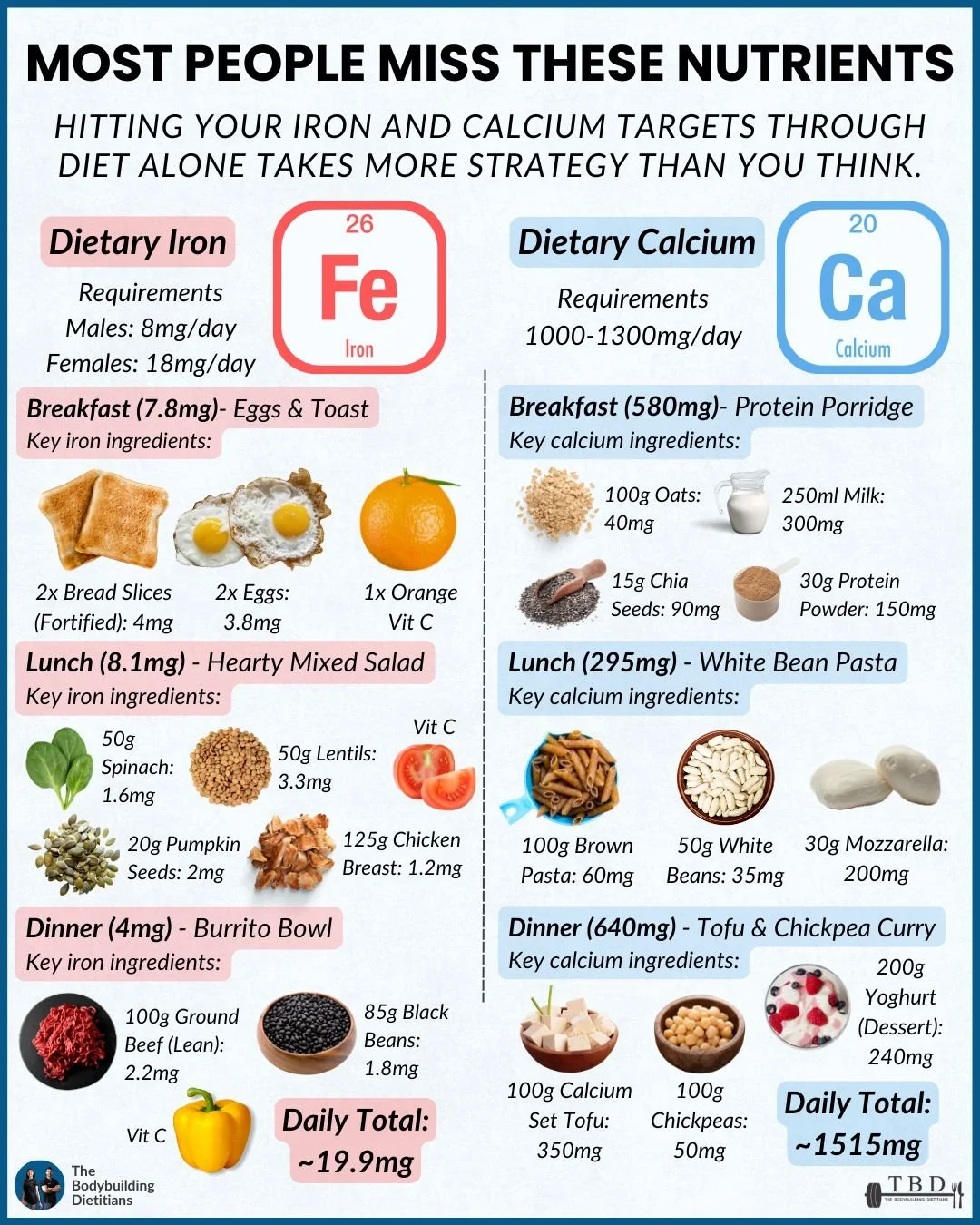You’d be shocked at how much food it actually takes to meet daily iron and calcium needs. Despite their critical roles, both nutrients are often overlooked in favour of macros or trendier supplements. Yet iron and calcium are absolutely fundamental for performance, recovery, and long-term health.
Why They Matter
Iron: Essential for oxygen transport, energy metabolism, and cognitive function. Inadequate intake reduces stamina, recovery, and even focus.
Calcium: The foundation of bone density, nerve signalling, and muscle contraction. For athletes, low intakes can mean compromised training, recovery, and long-term skeletal health.
For active individuals, these roles are magnified, and deficiencies can have compounding effects over time.
How Much Do You Actually Need?
Iron: 8 mg per day for men, 18 mg per day for women due to menstrual losses.
Calcium: 1000–1300 mg per day depending on age and sex.
But here’s the nuance: absorption matters just as much as intake.
The Nuances of Iron Intake
Iron exists in two main forms:
Heme iron (animal foods): absorbed more efficiently.
Non-heme iron (plant foods): less efficiently absorbed.
Absorption is influenced by:
Enhanced by: Vitamin C from citrus, capsicum, or berries.
Inhibited by: phytates (grains, legumes), oxalates (spinach), and excess calcium.
That means hitting your RDI on paper may not equal what your body actually absorbs.
The Nuances of Calcium Intake
Calcium from dairy and fortified foods is generally better absorbed.
Plant foods may contain compounds that reduce absorption.
Meeting calcium needs without dairy is possible, but far more difficult and often requires careful planning or supplementation.
Signs of Deficiency
Iron deficiency: fatigue, brain fog, reduced training capacity, brittle nails, and anaemia.
Calcium deficiency: often silent until later in life, but chronic inadequacy increases osteoporosis risk, stress fractures, and poor bone health.
Can It Be Done With Food Alone?
Yes, but it takes careful planning. Absorption inhibitors mean you may need to consume well above the listed RDI. For many, especially those with dietary restrictions or higher needs, supplements are a practical safety net.
Food-first is always ideal, but supplements can close the gap where diet alone falls short.
Key Takeaway
Iron and calcium are not optional extras, they are critical for health, performance, and longevity. If you’re falling short, you could be limiting not only your training progress but also your long-term wellbeing.
This is exactly where personalised nutrition strategies make a difference. Our 1:1 coaching ensures you’re not just hitting your macros, but also optimising the nutrients that drive performance and health. Reach out below!
